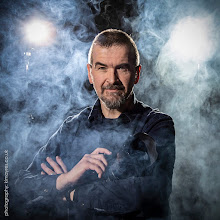Chalk Lines
Of course there are physical laws that prevent us from walking through walls or leaping off tall buildings with any hope of survival, but I’m not challenging these. What I am challenging are the assumptions so many of us make about our lives – about the way we have to live and the kind of person we have to be.
From the youngest age we are presented with a model, a narrative, of who we are and what it is to be a human being. We are eager to learn how to make our way in the world and we look for the clues and cues everywhere. Some things we are taught overtly – rules and regulations, lectures from parents, ministers, teachers – but a great deal more is much less obvious. We copy behaviour, we unconsciously read body language, we absorb the messages of our culture from TV, books, posters, newspapers, magazines, the clothes people wear around us. This mass of information works its way into our minds and we adopt narratives, stories, frameworks, which help us make sense of it all and learn survival techniques.
The problem is, so much of what we absorb and come to believe as true, is nothing more than someone drawing a chalk line around us and declaring there will be terrible consequences should we overstep it. We move around within the boundaries, never straying too close to the edge for fear of what might happen. Eventually the chalk lines are washed and blown away, but by then we have internalised them. There are no chalk lines to be seen and we have consciously forgotten they were ever there. We think we can wander somewhere else whenever we want to, and so believe ourselves to be free, but subconsciously they are now engrained.
If we accidentally stray close to where the lines used to be, we start to feel uncomfortable and wander back again. We don’t analyse our behaviour unless it is specifically brought to our attention; we just react on autopilot. Even though the chalk lines have long since gone, we still don’t cross the boundaries of where they were, and we don’t even realise we’re constrained.
Despite the fact that these lines are nothing more than man made constructs, usually created to serve the purposes of someone else, we come to believe they have an authoritative truth to them, thus we are even less likely to question them.
Of course, some lines, some rules, are beneficial – they help us live together in relative safety, but many of them are placed there not for our benefit, but for the benefit of someone else who doesn’t necessarily have our best interests at heart. Every time we are told to buy this gadget, consume that product, use this service, vote that way, we are having chalk lines drawn around us. We are always told they are for our benefit, but the ones who benefit most are those who are selling us the product, service or message.
Once we begin to truly realise we are constantly moving in an internalised world of chalk lines, then this gives us a powerful tool to detect them, understand our own behaviour and constraints, and start writing a new narrative for ourselves.
I daresay there will be more blog posts to follow on this topic as I organise my thoughts.






Post a Comment